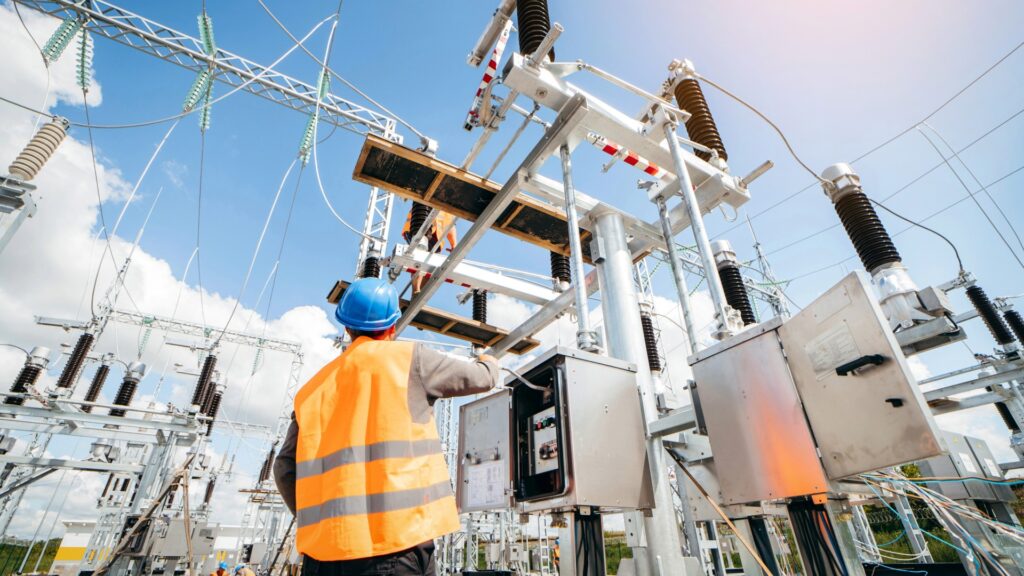Why Electrical Apprentice Jobs Are Critical for Industry Growth

For industries like mining, oil and gas, marine infrastructure, and municipal utilities, skilled labor is the backbone of safe and efficient operations. Electrical apprentice jobs provide a structured pathway to train the next generation of electricians while addressing the critical skills gap these sectors face. By blending classroom instruction with hands-on fieldwork, apprenticeships ensure that workers are prepared for real-world applications, from maintaining high-voltage equipment in a refinery to wiring control systems in a naval facility.
Employers benefit directly from investing in electrical apprentice jobs because the return on investment extends well beyond short-term labor costs. Apprenticeships reduce training expenses, lower turnover rates, and create a steady pipeline of licensed electricians who already understand the specific demands of industrial environments. Compared to external hiring, apprentices who advance through a company’s program are more likely to remain long-term, improving workforce stability and project continuity.
It is also important to distinguish electrical apprentice jobs from related opportunities in the field. Electrician apprentice jobs are typically focused on preparing individuals for residential and commercial work, while jobs in electrical engineering or maintenance may emphasize design, diagnostics, or project management responsibilities. By comparison, apprenticeships in heavy industries emphasize practical skills, safety compliance, and hands-on problem-solving tailored to high-value, high-risk environments. This makes them especially critical for employers managing large-scale infrastructure projects or defense-related contracts where reliability and safety cannot be compromised.
Foundational Skills Gained in Electrical Apprenticeships
Individuals entering electrical apprenticeships gain a strong foundation that prepares them for long-term success in the trade. These programs combine classroom instruction with structured field experience, ensuring apprentices understand both theory and application. Unlike many entry-level roles, apprenticeships provide a clear career pathway with measurable milestones. Participants acquire technical expertise, compliance knowledge, and troubleshooting skills specifically aligned with the demands of mining, oil and gas, marine, and municipal projects.
One of the earliest competencies developed is a strong grasp of electrical fundamentals, current, voltage, resistance, and power distribution. Apprentices learn to apply these principles across real-world systems such as industrial pumps, switchgear, generators, and automated control panels. With exposure to both AC and DC power, they are prepared to troubleshoot and maintain critical assets that drive productivity in heavy industries. This makes apprenticeship programs far more robust than most general electrical support roles.
Hands-on training is another defining advantage. Apprentices gain practical experience in conduit bending, wire pulling, motor control installation, and using advanced diagnostic tools. Unlike some entry-level jobs in the trades, which may be limited to repetitive work, electrician apprentice positions emphasize adaptability and problem-solving in unpredictable field conditions. These skills directly enhance project uptime, minimize costly breakdowns, and strengthen overall operational efficiency.
Equally important is the focus on safety awareness and compliance. Apprentices receive rigorous training in OSHA regulations, NFPA 70E safety practices, lockout/tagout procedures, and the correct use of personal protective equipment. In industries where even minor mistakes can result in millions in losses, workers from formal apprenticeship programs offer employers a workforce that is both productive and compliant.
Beyond technical expertise, apprenticeships also cultivate communication and teamwork skills. Apprentices learn to read blueprints, coordinate with engineers, and work alongside project managers on complex industrial sites. Compared to residential-focused electrician training, which often involves smaller teams and less demanding projects, industrial apprenticeships provide exposure to large-scale operations where collaboration is critical for project success.
Finally, modern programs integrate exposure to emerging technologies. Apprentices gain familiarity with digital monitoring systems, industrial automation, renewable energy integration, and energy-efficient power solutions. This not only prepares them for current industry requirements but also ensures they remain adaptable in a sector that is rapidly evolving. Employers see clear value here, as workers trained through electrical apprenticeships become future-ready professionals who support innovation and resilience across the entire electrical industry.
Skill Progression from Apprentice to Electrician
One of the most valuable aspects of electrical apprentice jobs is the clear pathway they provide toward becoming a licensed electrician. Unlike many entry-level jobs in electrical, apprenticeships are structured programs designed to build both technical mastery and leadership potential. As apprentices gain experience, their roles expand from assisting on routine tasks to taking responsibility for advanced systems, making them indispensable assets in industries such as oil and gas, mining, and marine operations.
In the early stages, electrical apprentice jobs focus on core skills like wiring, conduit work, and circuit testing. Over time, these abilities grow into advanced technical proficiency, including the installation of high-voltage equipment, transformers, switchgear, and automated control systems. This structured learning path distinguishes apprentices from workers in general jobs in electrical, who may only gain experience in limited or repetitive tasks. For those entering the trade, electrician apprentice jobs provide the most reliable route to becoming a fully licensed professional.
Another critical step in the progression is diagnostic expertise. Individuals in electrician apprentice jobs and industrial apprenticeships learn to troubleshoot faults using tools such as multimeters, insulation testers, and thermal imaging devices. The ability to diagnose and resolve problems quickly is vital in heavy industries where downtime can cost millions. This separates apprenticeship-trained workers from those in non-certified jobs in electrical, where exposure to complex systems is often limited.
As apprentices advance toward becoming licensed electricians, their training emphasizes regulatory knowledge. Unlike some residential-focused electrician apprentice jobs that prioritize basic NEC code compliance, industrial apprenticeships train workers to meet stringent OSHA standards, NFPA 70E protocols, and project-specific safety requirements. This ensures that installations and repairs are both technically sound and legally compliant, reducing liability for employers and increasing workforce safety.
The final stage of progression involves leadership development. Many who start in electrical apprentice jobs eventually supervise crews, manage large industrial job sites, and serve as coordinators between engineers, project managers, and procurement heads. Graduates of structured electrician apprentice jobs are not only skilled technicians but also emerging leaders who understand both operational efficiency and regulatory integrity. For employers, this makes investing in apprenticeship programs a long-term strategy for building a resilient and future-ready workforce.
Electrical Apprentice Jobs vs. Electrical Engineering Careers
While both play crucial roles in today’s industries, electrical apprentice jobs and electrical engineering careers represent very different paths, each with its objectives and outcomes. Apprenticeships emphasize hands-on technical expertise for installation, maintenance, and repair, whereas engineering focuses on system design, planning, and performance optimization. For decision-makers in oil and gas, mining, marine, and municipal sectors, understanding this distinction helps align workforce strategies with operational needs.
Professionals in electrical apprentice jobs gain their expertise through structured on-the-job training paired with classroom instruction. Apprentices learn blueprint interpretation, field installation, circuit troubleshooting, and strict adherence to safety codes. These practical skills directly impact the reliability and safety of critical infrastructure. Unlike narrower entry-level roles, apprenticeships expose workers to a wide range of industrial systems, preparing them for complex environments.
By contrast, those pursuing electrical engineering careers focus on higher-level planning, design, and system optimization. They may develop automation processes, model power distribution grids, or conduct load and fault analyses for large-scale facilities. While engineers design and oversee systems, workers in electrical apprentice jobs ensure installations meet specifications and are executed safely on the ground. Both paths are interdependent; without engineers, systems lack long-term optimization; without apprentices, designs cannot be implemented effectively.
It’s also important to distinguish industrial apprenticeships from traditional electrician apprentice jobs in residential or small commercial settings. Industrial apprenticeships demand greater technical depth, high-voltage exposure, and compliance training specific to large-scale infrastructure projects. This makes electrical apprentice jobs a unique subset of the electrical trade, delivering workforce capabilities that general roles cannot provide.
From an employer’s perspective, balancing these two career tracks delivers the highest return. Engineers create the technical blueprints, while apprentices and electricians carry out precise installation and ongoing maintenance. Investing in both electrical engineering careers and electrical apprentice jobs ensures seamless collaboration, reduces downtime risks, and builds a resilient workforce capable of meeting industrial demands now and in the future.
ROI for Employers Hiring Electrical Apprentices
For organizations in mining, oil and gas, marine, and municipal sectors, hiring through apprenticeship programs provides measurable returns on investment. These roles are not just entry-level opportunities; they represent a structured and strategic method to build a workforce that is skilled, safety-focused, and loyal to the company.
One of the strongest advantages is cost efficiency. Training apprentices internally often proves more economical than recruiting fully licensed electricians from outside. Employers save significantly on recruitment costs while tailoring training to their specific operational requirements. In contrast, many general electrical jobs may deliver technical skills but lack the specialized training required for high-risk industrial environments, making apprenticeships the more targeted and cost-effective option.
Retention is another critical ROI factor. Employees who progress through formal apprenticeship pathways are more likely to stay long-term, reducing turnover and maintaining stability across job sites. Unlike workers entering broader jobs in electrical without this structured background, these employees are already aligned with company culture, safety practices, and project requirements, ensuring smoother operations and fewer disruptions.
Compliance benefits also add significant value. Apprentices trained through electrical apprentice jobs learn national and local electrical codes, OSHA requirements, and sector-specific safety protocols. This reduces risk exposure for employers and gives procurement managers and project leaders confidence that installations and repairs will meet all specifications. While candidates from general electrical jobs may require additional compliance training, apprenticeships integrate this expertise from the start.
It is also important to distinguish between industrial apprenticeships and traditional electrician apprentice jobs in residential or small commercial environments. Large-scale industrial operations demand broader technical knowledge, higher voltage exposure, and strict adherence to safety standards. Apprentices trained for these industries directly minimize downtime, enhance compliance outcomes, and strengthen operational readiness.
Ultimately, investing in apprenticeship programs and electrician apprentice roles is not just about filling vacancies; it is about creating long-term value. Compared to broader jobs in electrical, these pathways deliver a workforce that is industry-specific, safety-driven, and prepared to grow into leadership roles, making them a vital strategy for sustaining operational excellence.
Skill Summary for Electrical Apprentice Career Path
The skills developed through electrical apprentice jobs create a strong foundation for long-term success in the trade. These programs go beyond teaching technical skills; they instill safety awareness, communication abilities, and problem-solving expertise that directly benefit employers in mining, oil and gas, marine, and municipal projects. For organizations, this means a workforce that is both adaptable and dependable in high-value, high-risk environments.
At the core of electrical apprentice jobs is technical knowledge, including a clear understanding of circuits, current flow, resistance, and power systems. Apprentices quickly advance into blueprint reading, installation practices, and troubleshooting in the field. This practical training ensures projects are delivered efficiently and to specification, avoiding the delays and rework often associated with less specialized jobs in electrical.
Another defining strength of electrical apprentice jobs is the strong emphasis on safety and compliance. Apprentices are trained in OSHA standards, electrical codes, and the proper use of protective equipment. For employers, this translates into reduced risk and full confidence that work will meet both regulatory and contract requirements. While candidates from broader jobs in electrical may require additional compliance training, apprenticeships integrate these standards from the start.
Equally important are the teamwork and communication skills gained through electrical apprentice jobs. Apprentices learn how to coordinate effectively with engineers, supervisors, and contractors, an essential capability in large-scale projects. Compared to traditional electrician apprentice jobs that often focus on residential or small commercial work, industrial apprenticeships emphasize leadership development in complex, high-stakes environments.
Ultimately, the skills acquired in electrical apprentice jobs deliver both immediate and long-term value. Unlike general jobs in electrical, these apprenticeships ensure workers are fully prepared for the unique challenges of industrial sectors, making them an investment in productivity, compliance, and future workforce stability.
Strategic Value of Electrical Apprentice Jobs for Employers
For leaders in mining, oil and gas, marine infrastructure, and municipal utilities, investing in electrical apprentice jobs is more than a workforce development initiative; it is a long-term strategic decision that strengthens operational resilience. Apprenticeships create a sustainable pipeline of skilled workers who understand both technical systems and compliance requirements, reducing dependence on outside recruitment and lowering costly turnover rates.
Organizations that prioritize electrical apprentice jobs consistently benefit from stronger retention, improved safety performance, and a workforce that is fully aligned with the realities of heavy industries. Apprentices are trained not only in high-voltage systems and blueprint interpretation but also in the application of rigorous safety codes. These skills go far beyond what is typically gained in general entry-level jobs in electrical, ensuring both short-term productivity and long-term leadership potential within the company.
When compared to standard electrician apprentice jobs, industrial-focused programs provide broader technical expertise and adaptability. Workers trained in industrial environments develop the ability to handle complex power distribution, automation systems, and large-scale infrastructure projects. This makes them valuable assets in high-risk sectors where downtime or safety lapses can result in substantial financial losses and reputational damage.
For employers, the ROI of electrician apprentice jobs is especially clear when apprentices transition into supervisory or project management roles. By building talent pipelines through structured apprenticeship programs, organizations gain trained professionals who can meet regulatory demands, deliver reliable on-site performance, and evolve into future leaders. This ensures that investments in electrical apprentice jobs generate not only immediate productivity but also long-term stability and competitiveness across industries.








